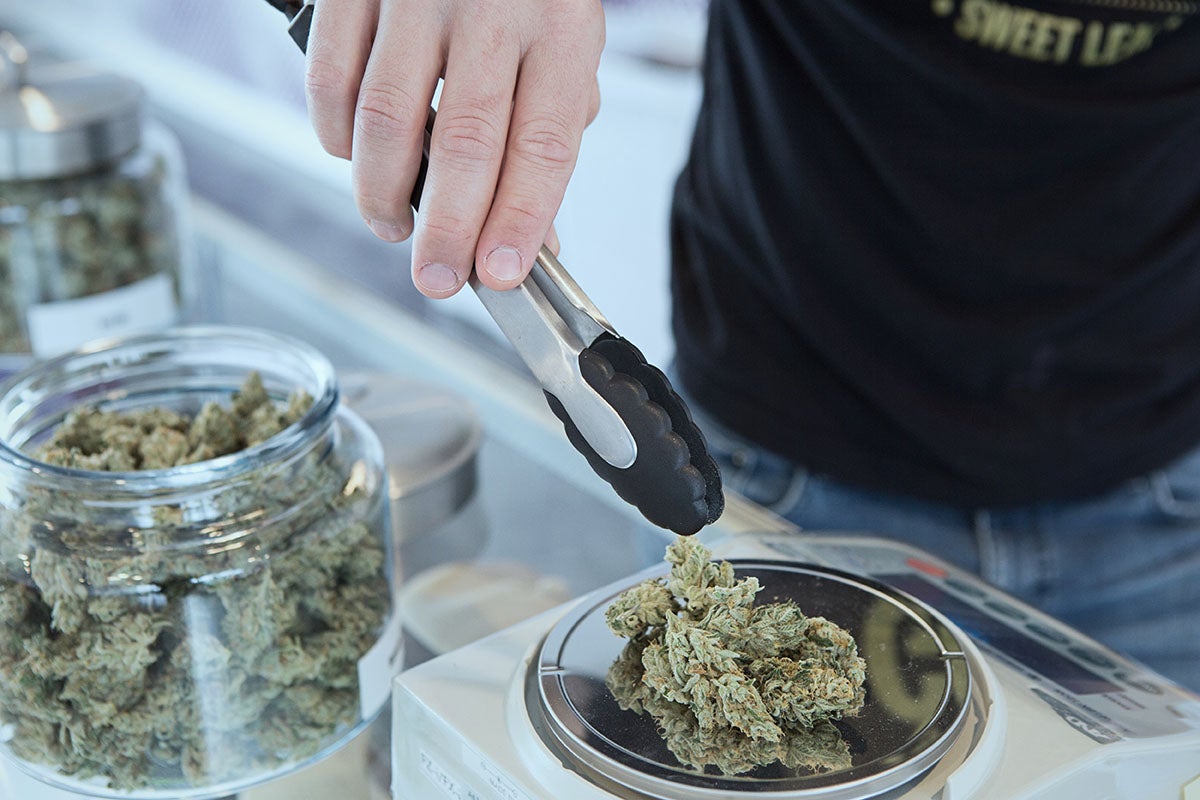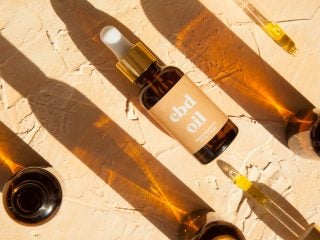The 2018 Farm Bill was intended to legalize hemp and its derivatives, but that hasn’t helped clear up the confusing legal status of cannabidiol (CBD). With the government cracking down on some CBD vendors, many are confused about the legality of the substance that is seemingly everywhere these days.
In short, CBD is legal — under specific circumstances. The legality varies by state, and it depends on whether the CBD is derived from hemp or marijuana.
Unfortunately, there is no simple answer to clarify the blurry legal status of CBD. Let’s break it down a little further.
Hemp vs marijuana
Hemp and marijuana are both variations of cannabis, with some major differences. Hemp was bred to be strong and fibrous, making it ideal for clothing fibers. It is also bred to contain very low levels of THC, with the legal limit being 0.3%. To put that in context, most marijuana strains range from 5% to 20% THC.
While hemp has been cultivated for industrial use and has a low THC content, marijuana typically has higher THC levels and comes in hundreds of different variations. Both hemp and marijuana can produce large amounts of CBD.
2018 Farm Bill
In the 2014 Farm Bill, limited language regarding transportation and research of hemp and its constituents, including CBD, put the entire hemp industry at risk of trouble with the DEA.
The 2018 Farm Bill clarified some points, making it legal to transport hemp across state lines and produce extracts from the plant, including cannabinoids like CBD.
Hemp-Derived CBD
Hemp-derived CBD is legal, assuming it does not violate the restrictions of the law. Under the 2018 Farm Bill, CBD derived from hemp is considered an “agricultural commodity.”
However, CBD derived from non-hemp marijuana plants still falls under the DEA’s listing of a Schedule 1 drug, which means it’s federally illegal.
As long as the CBD was sourced from plants that meet the governmental guidelines for hemp — which include keeping the THC level below 0.3%, adhering to state-federal regulations, and sourcing only from a licensed grower — it is legal.
States where medical or recreational marijuana is legal
The legality of CBD is also dependent on the marijuana laws of individual states.
People in states where recreational marijuana is legal (Alaska, California, Colorado, Maine, Massachusetts, Michigan, Nevada, Oregon, Vermont, and Washington) can legally use marijuana-derived CBD. The same goes for states where medical marijuana is legal.
But even states where medical use is not legal have incorporated their own CBD-specific laws.
These laws vary by state, with some allowing CBD use for specific conditions, and others setting requirements for approved use. Such requirements may be about the THC content or the type of condition CBD is used for.
Depending on the state, you will need to have a legal medical marijuana card in order to get marijuana-derived CBD. If you aren’t in a state where recreational marijuana is legal, it’s best to check with your state’s specific laws before getting your hands on marijuana-derived CBD.
States with strict CBD laws
With the confusing laws surrounding CBD, some states have taken the issue into their own hands.
Three states have asserted their stance against CBD: Idaho, Nebraska, and South Dakota. Kansas was on the list until March 2019, when the House approved a bill to legalize CBD oil with up to 5% THC.
Until something changes in Idaho, Nebraska, or South Dakota, it’s best to be extremely cautious if you use or produce CBD. The risks are high, and the laws are muddy even within the states.
Take South Dakota for example. The Attorney General recently released a statement about CBD, stating, “hemp and CBD oils remain illegal in South Dakota,” later calling “industrial hemp illegal and all forms of CBD oil illegal.”
The statement caused confusion for many, with some people fearing the legality of their accessories and clothing made from industrial hemp. After a statement meant to clarify the status of CBD in South Dakota, the legal situation has only become less clear.
The bottom line
CBD is legal under specific circumstances depending on your state. Generally, hemp-derived CBD is legal.
For those living in states where recreational marijuana is legal, CBD derived from hemp or marijuana is legal. Those living in medical-marijuana-only states may also use marijuana-derived CBD so long as they meet the proper requirements.
Other states have created their own CBD-specific laws, so it’s important to read up if you don’t live in a state where the legality is clear.

















